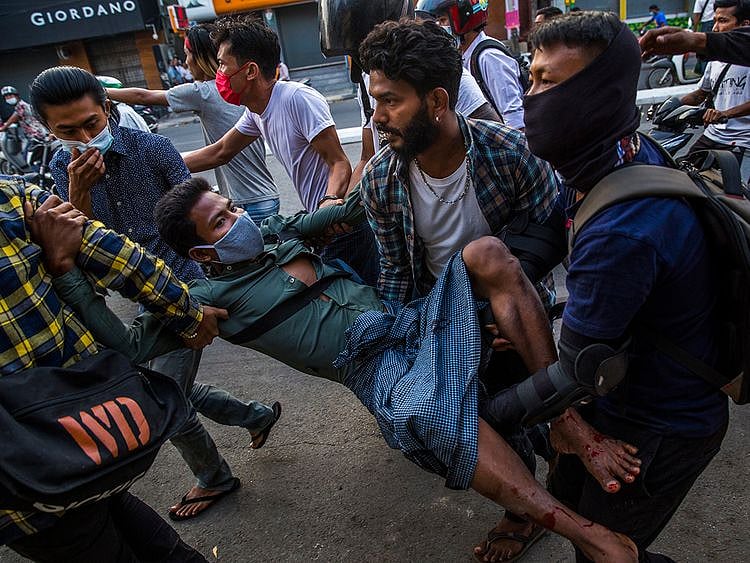The world is watching Myanmar
Violence is unacceptable and the junta must step back from the brink

It is now a little more than a month since the generals of Myanmar decided that once more their nation deserved the benefit of their collective military leadership, overthrowing the elected government where Aung San Suu Kyi was the de facto leader.
Over the past month there have been widespread and daily protests against the military intervention and, up to Sunday, it appeared as if the armed forces had held their patience and merely observed. On Sunday, however, that changed tragically irrevocably with a number of demonstrators fatally wounded.
Let’s be clear: This escalation to deadly force cannot be condoned and the security forces of Myanmar must hold fire in the face of the anger on the streets. On Monday, Suu Kyi herself appeared in court via video link on more colonial-era charges including one of disrupting public tranquillity, an odd choice given that she has been held in isolation and under house arrest since the February 1 coup d’etat.
Certainly, the actions of the security forces in gunning down protesters would certainly far exceed whatever legal threshold is required to prove the guilt of that charge.
It seems as if every generation in Myanmar must be blooded by actions of that troubled nation’s security forces, and the military and its generals has a long history in controlling its peoples through repression and the force of weapons. Indeed, the recent litany of abuse inflicted on the Rohingya people seems emblematic of the divisions and repression innately inherent in that nation.
The challenge now for the international community is to find an effective way forward to isolate and shun the leaders of Myanmar — and to do so quickly. Certainly, the full range of international economic sanctions that were applied to Myanmar up to 2010 succeeded in creating the conditions for Suu Kyi’s party to come to power, even if it was in a troubled courtship with the generals themselves.
As a matter of urgency, the Security Council of the United Nations needs to agree a comprehensive set of sanctions that freeze the assets of Myanmar beyond its borders, prevent any business from profiting from the regime, and punish the leaders of this junta. Regional partners must apply whatever diplomatic levers they hold, so too the G7.
Above all, the generals in Myanmar need to stand down their men in uniform. This is the time to step back from the brink. The world is watching.
Sign up for the Daily Briefing
Get the latest news and updates straight to your inbox
Network Links
GN StoreDownload our app
© Al Nisr Publishing LLC 2026. All rights reserved.